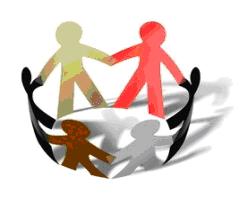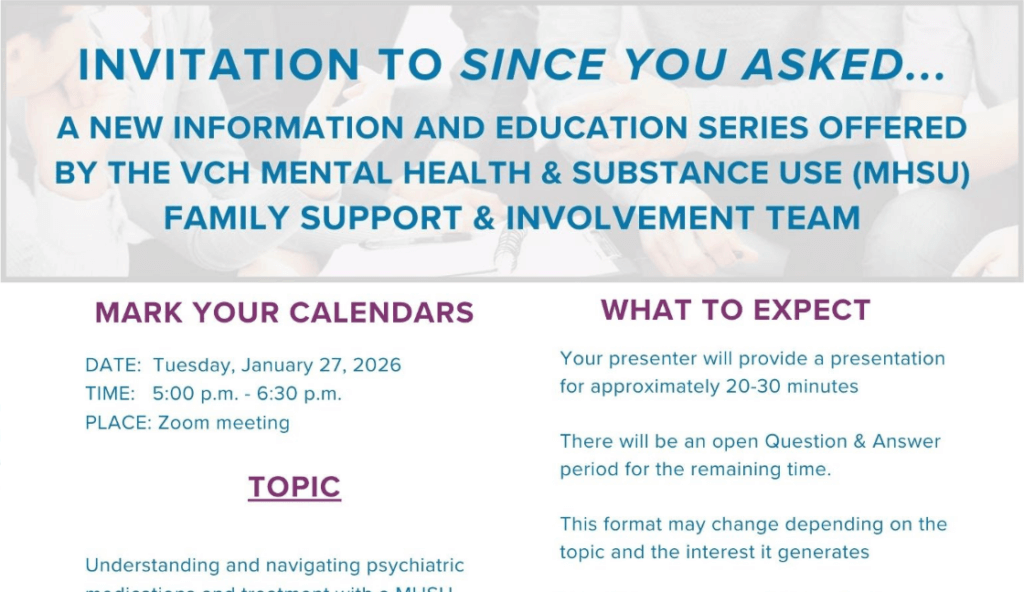
Coping Tips for Families

Parents Forever is a support group for parents and other family members of people who are struggling with addiction. This group has put together some coping tips that you might find useful:
HOPE
- Keep hope alive.
- Your child can recover and get their life back – others have.
- Be patient. It may take a very long time.
- Watch for signs of their old self – cherish these moments.
- Keep hope alive for yourself. You can get your life back – others have.
- You can learn to cope, even if your child continues to struggle – you can be “in recovery” years before your son or daughter.
- There’s no downside to being hopeful.
- Join a support group – you’ll hear stories to keep your hope alive (for your child and for you).
LOVE
- Love them as they are.
- Show your love.
- Stay in contact, if possible (hard if they don’t have a phone). For example, meet for lunch once a week.
- Establish boundaries. Boundaries are personal, but some examples: Can’t live in our house. Only occasionally give money. Don’t respond instantly to every call for help – respond on your timetable.
- Forgive them.
- It’s hard to love if you are filled with anger and resentment, so deal with your own issues.
- Phone calls & visits are great opportunities to show your love (and not your anger), so plan what you will say next time she calls, next time you see her. Example: You are capable, you will survive, we love you, let’s get together for lunch on Saturday.
- Write letters of love to him, in your journal.
- Photos of her/him that bring a smile to your face on the fridge.
- Love yourself – just as you are. Go easy on yourself.
- Forgive yourself – we all make mistakes, continue to make them.
- Take care of yourself and your possessions (locks on doors, safe).
- Share the burden – talk about it with family, friends, colleagues. Join a support group.
- Don’t put your life on hold. Enjoy yourself, look after yourself, have fun, enjoy friends. Don’t feel guilty about this. Give yourself permission to be happy and find some peace.
- Keep healthy – physically and mentally.
- Keep a journal.
ACCEPTANCE
- Accept them, as they are and everything about them (their addiction, their choices, that they could die, that they could be an active addict for years).
- Accept that despite your best intentions and trying everything to get them to change, you cannot control them. You are part of their support team, (along with counsellors, police, judges, probation officers, etc) but they have to decide to make the change. Accept that you are powerless over the addiction.
- It can take a long time to come to acceptance. It’s the last step of the grieving process (denial, anger, bargaining, depression, acceptance).
- Accept that this can be a long ride. Be patient, through the detoxes, recovery houses, relapses, jail, emergency room visits, etc.
- Accept the relapse, ‐‐ they gained something and grew from every moment in recovery, even if it only lasted hours.
- Accept yourself, and all your weaknesses, and ALL your emotions (it’s OK to be happy, it’s OK to be sad). The sadness will pass.
OTHER STUFF
- Live in the moment.
- Educate yourself– about addiction, about coping (whose list is it on, etc), about services available for homeless (food, shelter is available – they wouldn’t starve).
- Feel gratitude for all the positives in your life (family, friends, country, whatever).
WHEN YOUR CHILD IS IN RECOVERY
- It’s a lot easier to cope when your child is in recovery, BUT, addiction is often just one layer of the onion. They probably have underlying issues: lack of education, no job, mental illness, criminal record, etc, so still important to use coping skills.
- Keep hopeful, continue to love and accept your child and yourself.
- Initial stages of recovery can be worrisome (will he/she relapse?). but enjoy it.
- Relapse is part of recovery.
- Recovery is a long process, be patient.
- Stay positive.


